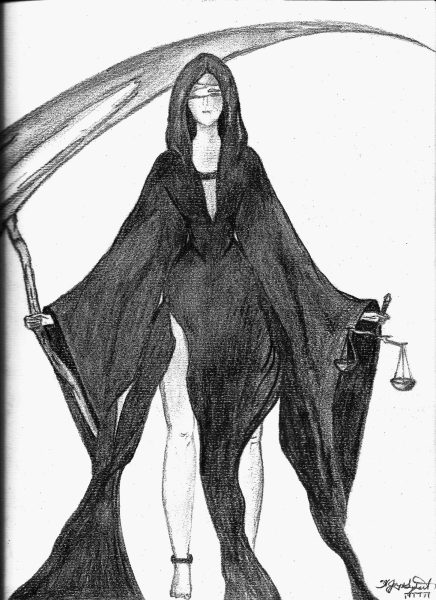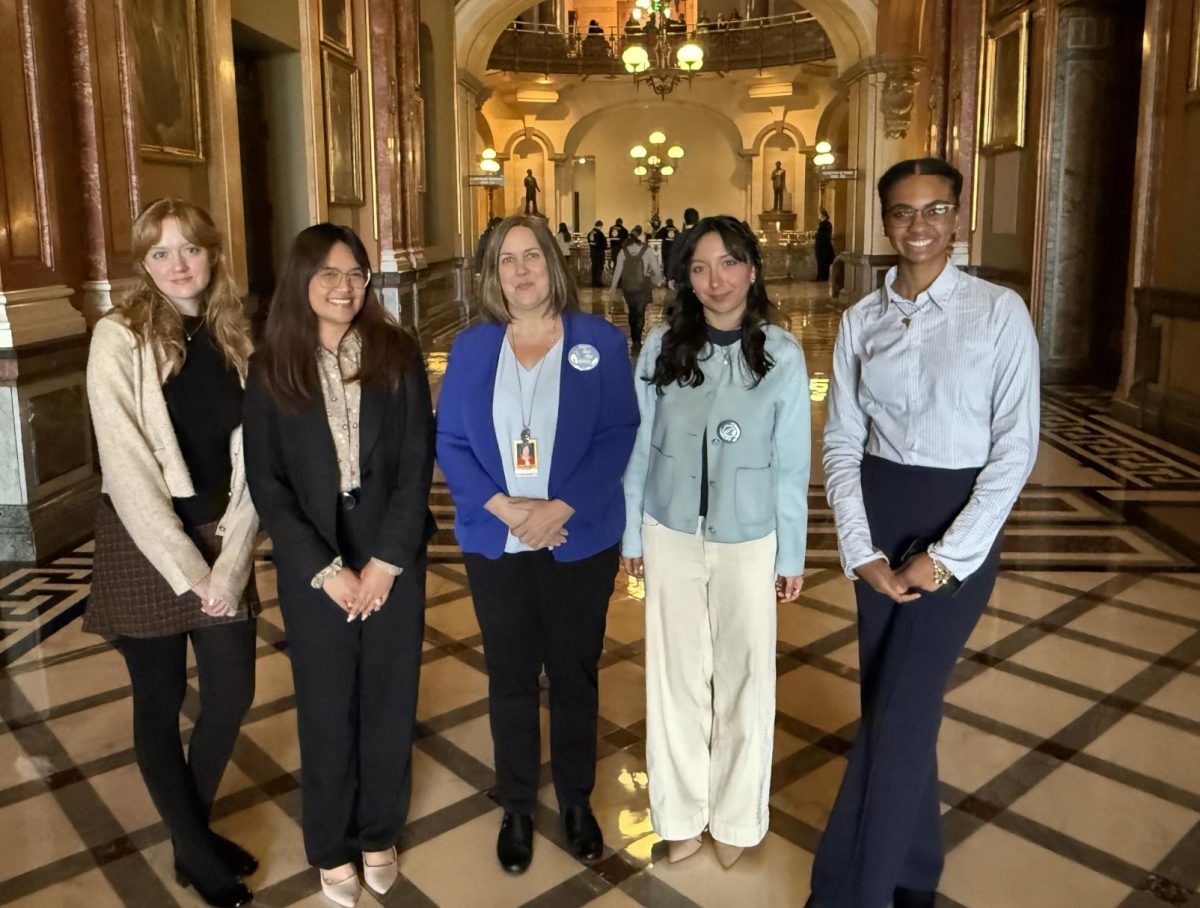On January 20, President Donald Trump signed an Executive Order titled Restoring the Death Penalty and Protecting Public Safety, lifting the federal execution moratorium put in place by former President Joe Biden in 2021.
The order reinstates federal executions and lays out the President’s personal perspectives on the death penalty and specific implementation directives for Attorney General Pam Bondi. The President states in the order that his administration views the death penalty as a necessity to a just society.
“Capital punishment is an essential tool for deterring and punishing those who would commit the most heinous crimes and acts of lethal violence against American citizens,” the order states. “Our Founders knew well that only capital punishment can bring justice and restore order in response to such evil.”
Former Prosecutor and professor for CLC’s Criminal Justice and Legal Studies programs, Jennifer Hulvat addressed the President’s assertion that the death penalty is necessary to deter violent crime and maintain a just society.
“I don’t believe that it is a deterrent myself,” Hulvat said. “It’s not that it couldn’t be, it’s just that there really isn’t any credible studies or data that suggest capital punishment is a deterrent.”
Hulvat explained that the problem with measuring deterrents is that, by definition, deterrence means the crime did not happen. That leaves the incident rates of capital murder as the only evidence to look to. This makes it difficult to point to one conclusive factor like capital punishment, as there are many reasons people choose not to commit murder.
“I think if we had that data, it would be a strong argument,” Hulvat said. “I’d like to see it. I just haven’t been able to find it.”
According to the Death Penalty Information Center (DPIC), the Federal Bureau of Investigation data shows that 10 out of 12 non death penalty states have murder rates under the national average. The Times also conducted a state-by-state analysis spanning the last 20 years, which showed the average homicide rate in death penalty states has remained between 50 to 100 percent higher than in states without the death penalty.
Hulvat also addressed the President’s statements that justice cannot be achieved unless a society embraces capital punishment.
“It depends on your definition of justice and what you believe a just society is,” Hulvat said. “Does a just society mean a society that is equitable in the imposition of its criminal punishments? Does it mean that we’re protecting against error? Does a just society mean that we are being aggressive under a crime control model and policies?
“That’s the problem with using the umbrella of ‘just’ or ‘justice’ to justify an extreme penalty like this. I think the President’s Administration defines ‘just’ as ‘aggressive’. And that’s okay, if that’s your definition. But we have to be very careful to define that term.”
Dr. Aleksandar Jankovski, Political Science professor at CLC, also addressed this issue of justice, calling to one of the great minds of history.
“There is an argument – advanced by Tolstoy – that the administration of the death penalty is not the administration of justice,” Jankovski said. “The death penalty is nothing but a mechanism for social and political control. We know that the death penalty has been disproportionately used to target vulnerable and marginalized groups. Certainly, this is not justice – however one decides to define justice.”
The order went on to state that legislators and judges who oppose the death penalty are in defiance of their legal duties.
“For too long, politicians and judges who oppose capital punishment have defied and subverted the laws of our country,” the order states. “Efforts to subvert and undermine capital punishment defy the laws of our nation, make a mockery of justice, and insult the victims of these horrible crimes. The government’s most solemn responsibility is to protect its citizens from abhorrent acts, and my Administration will not tolerate efforts to stymie and eviscerate the laws that authorize capital punishment against those who commit horrible acts of violence against American citizens.”
Hulvat reacted to the President’s characterization of judges who use their discretion to steer away from death penalty sentences as defying U.S. law.
“Well, first of all, that is pretty lofty language from the current administration,” Hulvat said. “Discretion is the essence of why a judge becomes a judge.”
She said historically restrictions and pauses to the death penalty are not new in the United States. Many Supreme Courts have gone through periods of staying all Federal executions, most notably in the 1970’s decision Furman v. Georgia when the Court paused executions to reform procedures that were leading to arbitrary application in many states, in violation of the 8th Amendment. Hulvat asserted a similar motivation for the most recent moratorium.
“The federal government struck down the death penalty, just like many states in the country, for a reason. Not because we didn’t like it, but because the data regarding wrongful convictions and targeted prosecutions suggested that we needed to take a pause and look at it,” Hulvat said. “So, to suggest that properly vetted federal judges are subverting the cause of justice because they are using what the Supreme Court has created in terms of a carefully defined, two-part system to impose a death sentence, to me, disregards the entire purpose behind giving judges discretion in this careful consideration to begin with.”
Hulvat also disagreed with the President’s statement that steering away from capital punishment is an insult to victims.
“The victim’s perspective is very real and very important and, in that regard, justice is handed out to allow victims’ families healing and closure,” Hulvat said. “ I absolutely respect that, but I think we have to be careful suggesting that every victim’s family supports mandated death. That has not been my experience with 35 years of the practice of law, 18 as a prosecutor. It is very multifaceted.”
She went on to explain the complexities that govern criminal sentencing, highlighting the careful balance that needs to be achieved in examining the individual elements of each case.
“The death penalty was an appropriate constitutional contemplated penalty. But it doesn’t stop there,” Hulvat said. “You cannot hand it out without a very, very careful bifurcated process wherein we carefully examine elements on the victim’s side, and all of those elements on the offender’s side. No two cases are the same. No two victims’ families feel the same. I don’t believe we can make generalizations because I don’t believe that was the intent of the framers of the Constitution.”
The Order also states that Attorney General Bondi is to take a targeted approach and pursue Federal jurisdiction wherever possible to seek the death penalty in all capital cases where the defendant is an undocumented immigrant, or a law enforcement officer has been killed. The Order states this will be done regardless of the individual facts of each case. This directive echoes the President’s targeted rhetoric concerning undocumented immigrants.
In conjunction with the President’s Order, Bondi also released a memo expanding on this order and detailing how these directives will be implemented. In her memo she writes that, in addition to pursuing the death penalty in cases going forward, the department will be reevaluating no-seek decisions in pending cases as far back as January 2021.
“Particular attention shall be paid to cases involving defendants associated with cartels or transnational criminal organizations, capital crimes committed by defendants present in the United States illegally, and capital crimes committed in Indian Country or within the federal special maritime and territorial jurisdictions,” Bondi said in the memo.
These directives have raised concerns that the Order and subsequent memo will disproportionately impact cases involving undocumented immigrants and minority demographics, applying the death penalty more harshly against those groups.
Hulvat echoed those concerns stating that it is vital such directives are applied uniformly for justice to be served.
“If the intent of the administration was to ramp up the use of the death penalty across all demographic groups, I think that is its prerogative,” Hulvat said. “I would have felt more procedurally comfortable with the entire process if it didn’t target any groups, because that’s completely contrary to the Constitution, and I think it’s going to be tested as such in our Supreme Courts.”
The wording of Section 5 of the order, entitled “Seeking The Overruling of Supreme Court Precedents That Hinder Capital Punishment,” raises additional concerns. It admonishes the Attorney General to actively seek to overrule Supreme Court precedents that may allow for limits on the use of capital punishment. A president openly targeting established Supreme Court decisions does not sit well with many Americans who value the Constitutional separation of powers.
“I have significant concerns about the executive branch, ordering the ruling of precedent. That’s not their job,” Hulvat said in response to the mandate. “Certainly if the U.S Supreme Court has jurisdiction to hear a proper case addressing the issue. Well, then, that is, the process adhered to in this country; but, that mandate to me appears to be holy, politically driven.”
She went on to state that she supports the Supreme Court accepting cases properly on cert but rejects any attempt by the president to actively pressure the United States Supreme Court to enact the goals of the executive branch.
“Checks and balances. Separation of powers. Call it whatever you want. It is not the job of the United States Supreme Court to do the executive branch’s bidding,” Hulvat said.

The Attorney General has yet to push a related case before the Supreme Court. However, in the ongoing case of Luigi Mangione, who stands accused of fatally shooting United Healthcare CEO Brian Thompson, the Attorney General has made it clear the department will be pushing hard for a death sentence. Such a sentence would be unprecedented based on existing precedent for similar cases. If Luigi is found guilty and sentenced to capital punishment, his case may be the first to come before the Supreme Court on appeal.
When asked about the lifting of the moratorium in general, Hulvat expressed that the President is within his rights and, regardless of any personal stance on capital punishment, this is now the legal mandate that must be followed within the Federal government.
“The moratorium can be lifted,” Hulvat said. “The death penalty is a constitutional sanction, as long as we follow constitutional rules”







